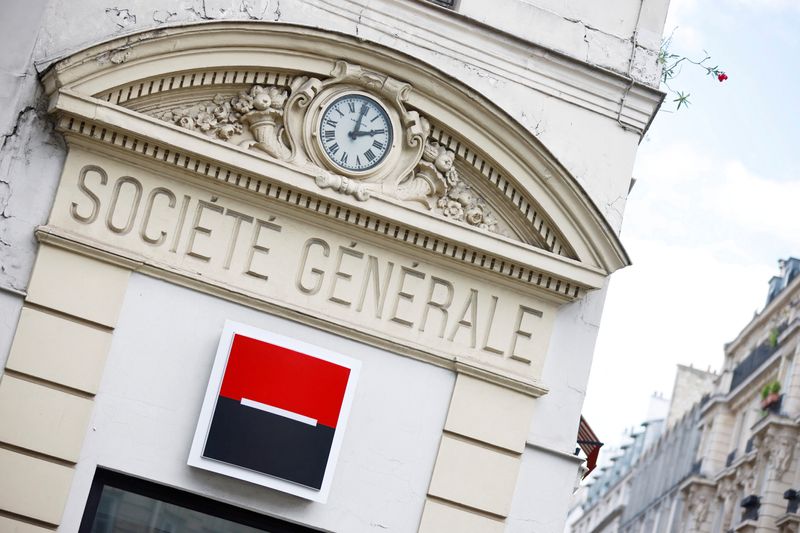By Valentina Za
MILAN – A ramping up of financial sanctions against Russia following its invasion of Ukraine has plunged European lenders into turmoil.
The European arm of Sberbank, Russia’s biggest lender, faces failure, the European Central Bank (ECB) warned on Monday, after a run on its deposits sparked by the backlash from Russia’s invasion of Ukraine.
Upending the financial sector, Western countries will exclude some Russian lenders from the SWIFT international payments system and, crucially, target the country’s central bank to stop it from using its foreign reserves.
The moves aim to undermine Russia’s ability to weather wider economic sanctions and threaten Western banks in Russia and exposed to its economy.
In Europe, Italian and French banks have the largest Russian exposure with a little more than $25 billion each at the end of September, followed by Austrian banks with $17.5 billion, data by the Bank of International Settlements show.
By comparison, U.S. banks’ exposure is $14.7 billion.
Which banks are affected?
RAIFFEISEN BANK INTERNATIONAL (RBI)
The Austrian lender’s Russian unit ranks as the country’s ninth largest bank by loans https://www.rbinternational.com/en/who-we-are/our-network/international-network/raiffeisen-in-russia.html.
With overall assets of 15.8 billion euros, it employs around 8,700 staff to serve more than 4.5 million customers. Its equity of 2.4 billion euros file:///C:/Users/u8018106/OneDrive%20-%20Thomson%20Reuters%20Incorporated/Documents/2022-02-02%20Presentation%20RBI%20(3).pdf represents 18% of consolidated equity.
The Austrian bank’s Russian exposure totalled 22.85 billion euros file:///C:/Users/u8018106/OneDrive%20-%20Thomson%20Reuters%20Incorporated/Documents/2022-02-02%20Presentation%20RBI%20(2).pdf, more than half relating to the corporate private sector, it said in its 2021 results presentation.
Russia’s central bank accounts for 8% of RBI’s exposure to the country, sovereign entities for 4% and Russian banks for 2%.
The overall figure comprises 11.6 billion euros in customer loans (or 11.5% of group). Just over 80% of the loans are in Russian roubles, with foreign currency lending reserved for borrowers with a matching forex exchange income.
However, cross border exposure to Russia is only 1.6 billion with no parent funding from Vienna. Raiffeisen also holds 2.2 billion euros in loans to Ukrainian customers.
Provisions against losses cover 64.3% of RBI’s impaired exposures in Russia.
RBI Chief Executive Johann Strobl told Reuters that the group’s Russian subsidiary “had a very strong liquidity position and (was) recording inflows”.
SOCIETE GENERALE
The French bank, which operates Russian unit Rosbank, had 18 billion euros https://www.societegenerale.com/sites/default/files/documents/2022-02/Q4-21-Financial-Results-Presentation.pdf of overall exposure to Russia at the end of last year – or 1.7% of the total for the group.
That includes both on- and off-balance sheet items (for example a credit line that has not yet been tapped) under a risk disclosure definition known as ‘exposure at default’.
Of SogGen’s Russian exposure, 39% is to the corporate sector and 36% to retail. Sovereign entities account for 21%, financial institutions for 4%.
Actual loans grew 13.3% last year to 10.5 billion euros.
Societe Generale started doing business in Russia in 1872 then left the country in 1917, the year of the Bolshevik revolution, to return in 1973. It has 1.5 million local customers.
Its Russian retail business – to which 1.05 billion euros of capital was allocated on average last year – turned in 115 million euros in 2021 net income, up from 37 million euros in 2020. When including financial services, net income at SG Russia was 152 million euros, versus 76 million in 2020.
The bank said it had implemented measures to adapt to the new sanctions imposed against Russia and that its Russian unit Rosbank continued to operate in a “safe manner”.
UNICREDIT
Italy’s only lender deemed of global systemic importance by regulators owns a subsidiary in Russia which ranks as the country’s 14th largest bank. UniCredit Russia’s 2.3 billion euros in equity accounts for 3.7% of the group’s total.
UniCredit’s exposure at default relating to Russia totalled 14.2 billion euros based on its Pillar 3 risk disclosure requirements, as of mid-2021.
Of the total figure, around 8 billion euros are loans extended by the Russian arm and locally funded, while the rest includes off-balance sheet items and cross-border loans mainly granted by UniCredit SpA towards large corporates outside of Russia.
UniCredit said last week its Russian franchise accounted for only around 3% of group revenues and provisioned covered 84% of its non-performing exposures.
INTESA SANPAOLO
Rival Italian heavyweight Intesa Sanpaolo is also active in Russia where it has financed major investment projects such as the ‘Blue Stream’ gas pipeline and the sale of a stake in oil producer Rosneft.
Intesa’s loan exposure to Russia totalled 5.57 billion euros at the end of 2021 https://group.intesasanpaolo.com/content/dam/portalgroup/repository-documenti/investor-relations/presentazioni-it/2022/Presentazione_FY21_IT.pdf, or 1.1% of the total.
Its subsidiaries in Russia and Ukraine have assets, respectively, of 1 billion euros and 300 million euros, which together represent just 0.1% of the group’s total assets.
Intesa, Italy’s biggest bank, handles more than half of all commercial transactions between the two countries.
ING
The Dutch bank has around 4.5 billion euros in outstanding loans with Russian clients and around 600 million euros with clients in Ukraine, out of a total loan book worth more than 600 billion euros.
The majority of these loans are in euros and dollars, mostly project finance and collateralised loans, and in a good number of cases loans and collateral are outside Russia or Ukraine.
ING said many sanctions against Russia had been in place since 2014.
(Additional reporting by Brenna Hughes Neghaiwi in Zurich, Toby Sterling in Amsterdam, Alexandra Schwarz-Goerlich in Vienna; editing by John O’Donnell and Andrew Heavens)
